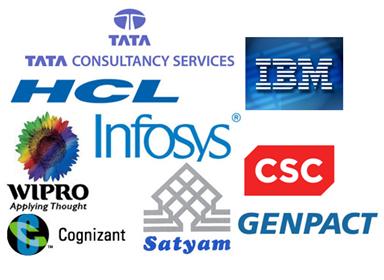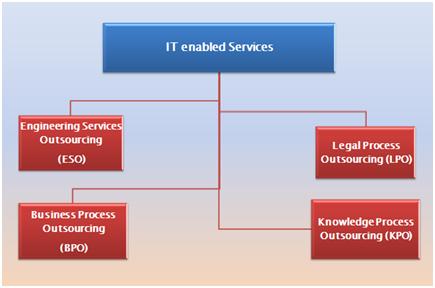 Featured Sector
Featured Sector

 Featured Sector
Featured Sector


According to a recent economic survey, the IT-ITES sector was responsible for creating almost 3 million additional jobs during 2011 and the number is expected to grow in the coming future. One of the main reasons behind such a phenomenal growth rate is the gap between the demand and supply of technical manpower. The high attrition rate in the sector often leaves many jobs vacant in the sector. Thus, the scope for opportunities in the sector is enormous in India.
Business Process Outsourcing (BPO): The BPO industry has emerged as one of the key factors of growth for the software and services industry in India. Offering services like customer support, technical support, telemarketing, online research etc., today ITes-BPO sector has emerged as one of the biggest employment generators in the Indian industry. Information technology services such as testing or quality assurance, application development and its maintenance, data centre operations are outsourced to a third-party vendor/company with the objective of reduced operational costs and higher efficiency. Genpact, Wipro, TCS and Infosys are some of the dominant outsourcing service providers in the BPO field.
Skills Required:
Engineering Services Outsourcing (ESO) is one of the largest sectors of the industrial world, and is estimated to grow at $40 billion by 2020. Cost and quality are the two main reasons why engineering services are outsourced. Unlike a BPO sector, where lower operational cost is a major factor to outsource services, ESO focuses on the ability to get better quality product from a domain focussed company/third party.
Engineering services delivery begins with the requirement phase (to build a new product/technology). The requirement phase is then followed by the design phase where the engineers analyze the idea or problem and design solutions according to the design specifications/guidelines. The designed model undergoes manufacturing/construction phase followed by the testing phase. Standards play a major role in the entire engineering cycle as much as the engineering results and the engineers are in contact with the client at all steps. Upon completion of the product, engineers are often involved in the operation and support services of the product.
Skills Required:
 Knowledge Process Outsourcing (KPO) involves a component of BPO, research and analysis.
A company involved in knowledge processing would thus be an organisation where objectives are dependent on the domain knowledge, skills and experience of the people carrying out the processes. An American company for example might outsource the job of data entry to a BPO initiative and could select a KPO service provider to evaluate its applications based on a set of criteria/standards. The work to evaluate and test applications would definitely require efforts of a more skilled labour than data entry would. Hence a KPO industry encompasses greater expertise than a BPO industry which is more about size and efficiency.
Knowledge Process Outsourcing (KPO) involves a component of BPO, research and analysis.
A company involved in knowledge processing would thus be an organisation where objectives are dependent on the domain knowledge, skills and experience of the people carrying out the processes. An American company for example might outsource the job of data entry to a BPO initiative and could select a KPO service provider to evaluate its applications based on a set of criteria/standards. The work to evaluate and test applications would definitely require efforts of a more skilled labour than data entry would. Hence a KPO industry encompasses greater expertise than a BPO industry which is more about size and efficiency.
Skills Required:
Legal Process Outsourcing (LPO) refers to the outsourcing/off-shoring of different elements in the legal process by law-firms to offshore centres here in India. Bickel & Brewer became the first firm to do legal outsourcing in 1995 in India. Six years later, in 2001, GE was the first company to offshore its in-house legal work here. Work in a LPO firm generally involves documentation and drafting (data entry and document management), filing patent applications, infringement studies and legal research. For most of the work a law degree is essential, but these days a large part of the work in the LPO sector is done by engineers. There is a huge demand for engineers in the intellectual property rights domain for performing patent work. They go through the patent applications to analyze scientific and technological inventions to craft legal protection framework.
Skills Required: